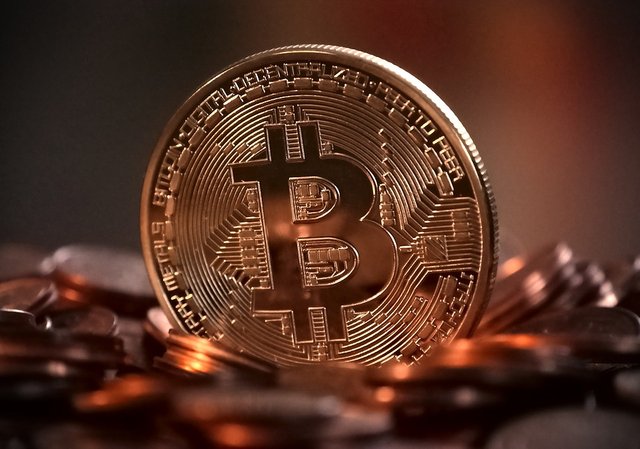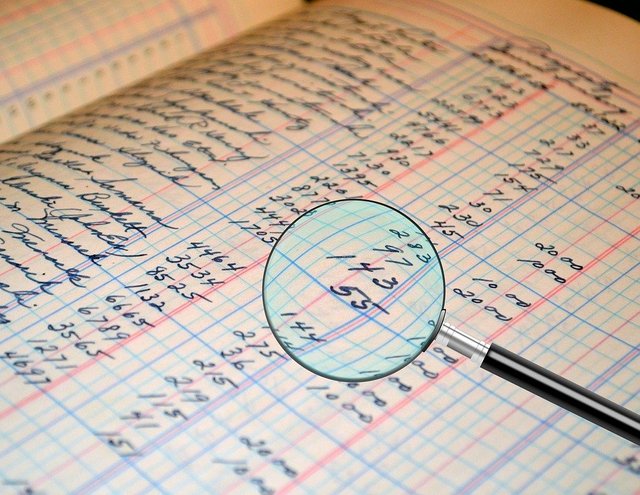Finally, Bitcoin! - UNDERSTANDING THE BLOCKCHAIN; Episode 4
Hey there! Welcome to another episode of Understanding the Blockchain.
You can check out previous episodes here:
1. Episode 1 | This Is How Money Works
2. Episode 2 | Is Digital Money the Answer?
3. Episode 3 | Before Bitcoin, Earlier Attempts at Crypto
So, we are finally getting to talk about the first successful cryptocurrency, bitcoin.

Source: Pixabay
We’ve explored a lot already in previous episodes. We’ve talked about the different types of money; the 3 different categories recognized my most economists. We explored digital currencies and talked about some examples, we’ve talked about cryptocurrencies in general and how they solve the problems faced by the other kinds of currencies.
So, what is a cryptocurrency?
A cryptocurrency uses cryptography to do two things
- To prove the integrity of a ledger
- To prove ownership
Now before we get ahead of ourselves and start saying gibberish, what is cryptography?

Source: Pixabay
Cryptography is simply the art of sending secret messages. So that is where the crypto part of cryptocurrency comes from.
What then is Bitcoin?
It is a peer-to-peer payment network that is powered by its users and governed by a combination of: cryptography and social consensus.
This is just a basic way of saying there is no centralized authority. The authority is the consensus of 10,000+ computers and users agreeing on a transaction and cryptography to further reinforce that consensus.

Source: Pixabay
In October 2008, the Bitcoin White Paper was anonymously published by a user who went by the pseudonym
[email protected]
www.bitcoin.org
In January of 2009, the network described in the paper started running on Satoshi Nakamoto’s computer.
On January 3rd, 2009, the first bitcoin block was mined. We haven’t talked about what blocks are or mining in yet but we’ll explore that later. This was basically the first entry in the bitcoin ledger; the first bitcoin was created.
On January 12th, 2009, the first bitcoin transaction was made. 10 bitcoins were sent from Satoshi Nakamoto to Hal Finney.
If you can remember, we talked about Hal Finney in Episode 3. He was the creator of Reusable Proof of Work (RPOW) and there’s a conspiracy theory stating that Hal Finney is in fact Satoshi Nakamoto.
After Bitcoin was created, it took a while for it to catch on and get any value. People in forums started using it and running nodes but it never caught on.
On May 22nd, 2010, a developer bought 2 pizzas bought 2 pizzas using a whole 10,000 units of bitcoin. This was the first recorded instance of someone using bitcoin for anything real. That would have been about two hundred million dollars ($200,000,000) at the height of bitcoin in 2017. At that point, bitcoin had an actual value which wasn’t very high but over time, around 2014, it began to approach the $100 mark. At one point, it approached twenty thousand dollars ($20,000) in 2017. So enough about the pricing and economics, let’s explore the technology itself.
The idea of the social consensus is that if Mister A wants to send some currency to Mister B, only Mister B receives the currency but everyone else on the network receives the ledger of this transfer.
So, imagine how difficult it would be to send the ledger of your transfer, or in other words notify the 10,000+ computers on the network about your transfer and everybody should agree on it. This is what happens when you decentralize a ledger and this is what the blockchain technology achieved.
One thing to note is that this happens every time a transaction is made on the chain and so because of this, there is not a finite moment when your transaction happens on the blockchain. Your transaction is only deemed completed when most of the network confirms your transaction.
This is the reason why when a transaction is made, you have to wait for a certain number of “confirmations” before it is finally sent. More than 50% of the network confirming the transaction is the benchmark used to confirm when the transaction is completed.
Divisibility
One very important concept is the divisibility of bitcoin. 1 bitcoin is worth thousands of dollars. 1 bitcoin is a hundred million satoshi.
1 BTC = 100,000,000 Satoshi
0.00000001 BTC = 1 Satoshi
If you are purchasing bitcoin, you don’t need to buy a minimum of just 1 bitcoin. You can buy just a couple of satoshis up to one millionth of a bitcoin. This means you can easily buy .1 or .01 or even up to .00001 of a bitcoin.
In the next episode, we’ll explore in depth a bitcoin transaction. What exactly happens when a bitcoin transaction is made.

Due to the get rich quick notions in cryptocurrency, I don't think bitcoin and cryptocurrencies are still on the path of creating justice in the financial sector, many unhealthy practices. But technology will win in the end.
Very true. When more practical implementations of the Blockchain begin to come up though, and there is more adoption, I believe all these will be talks of the past. Like you said, technology will win in the end.
@tipu curate
Upvoted 👌 (Mana: 8/20) @swap.app - quick steem <-> sbd swaps